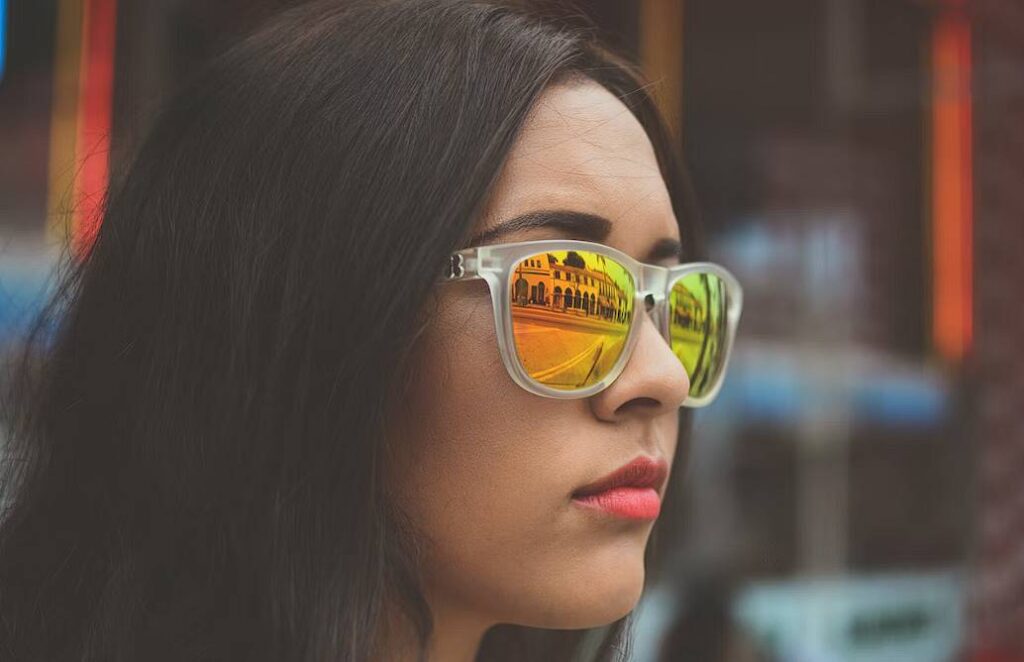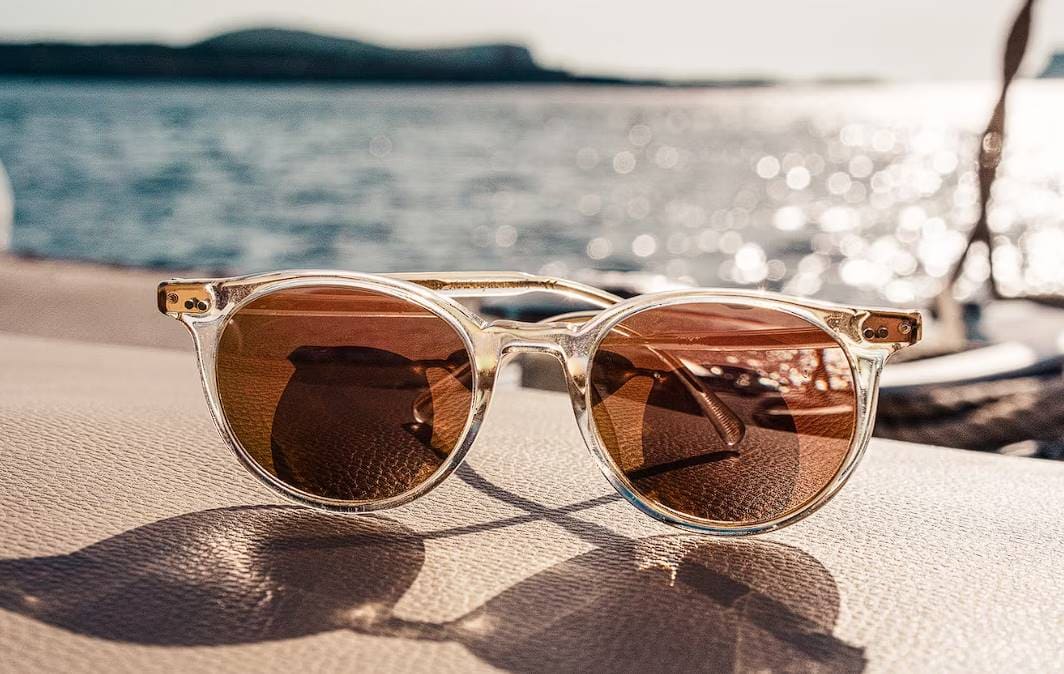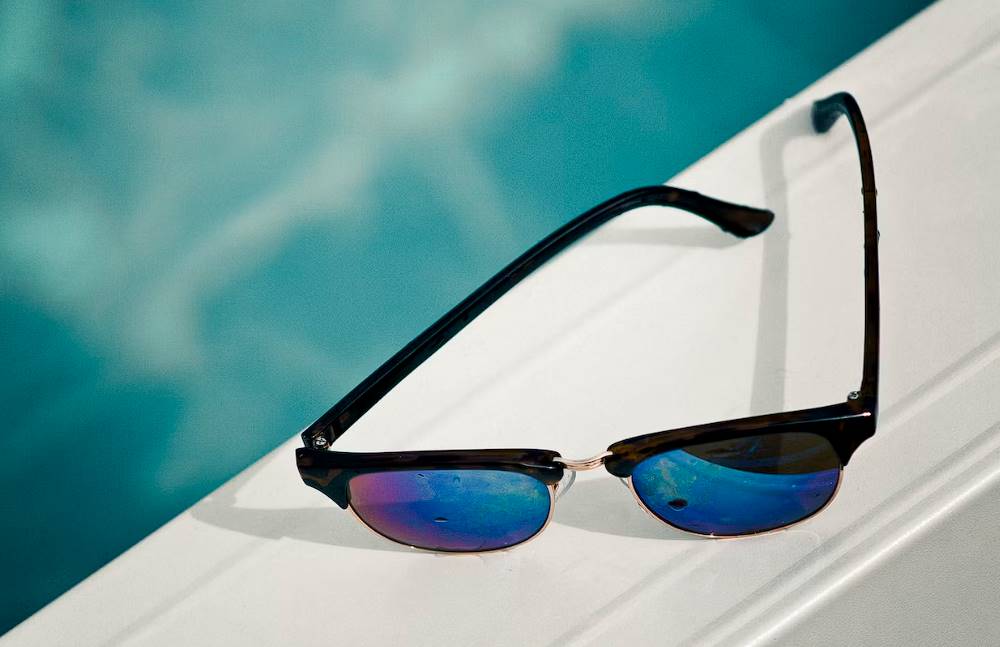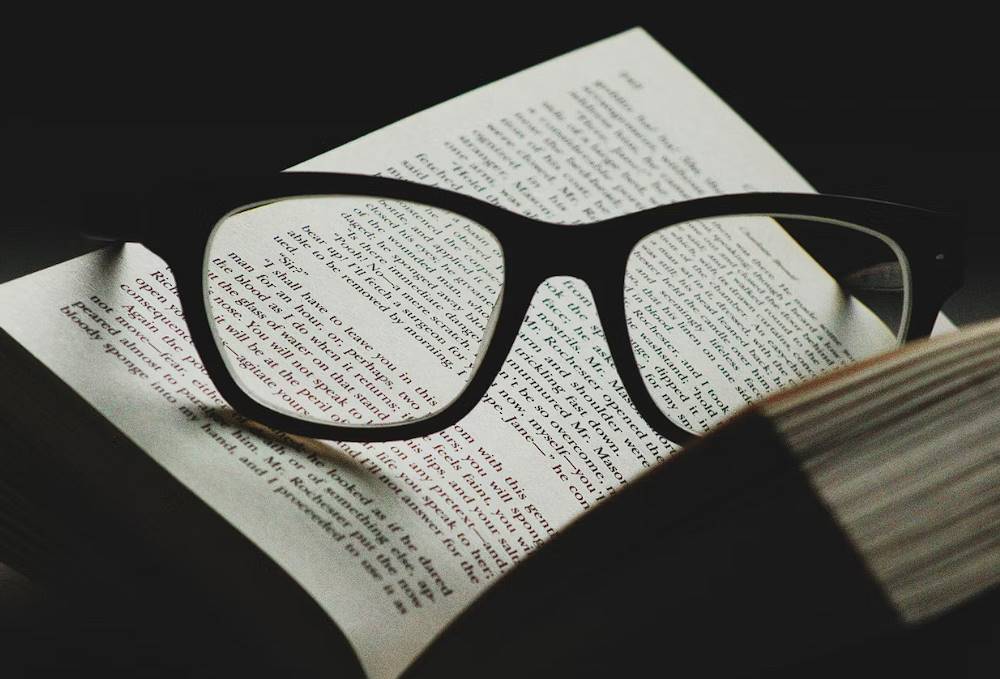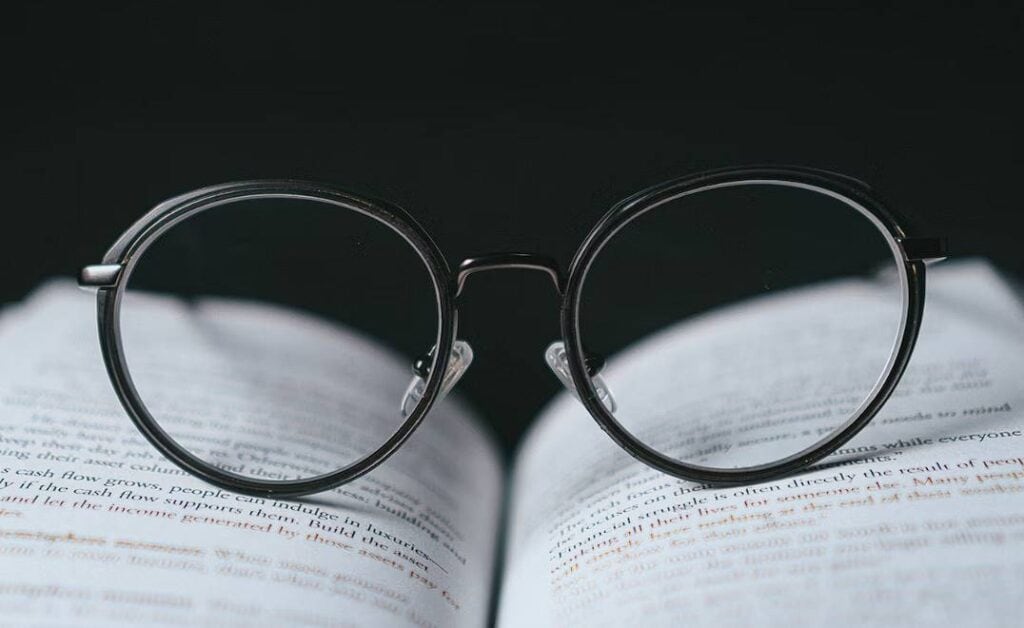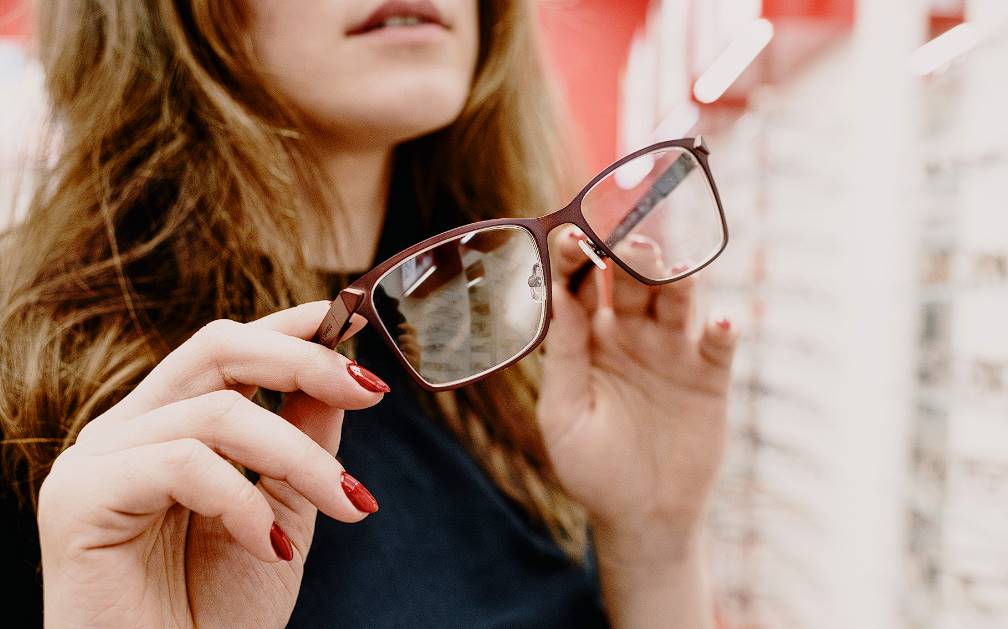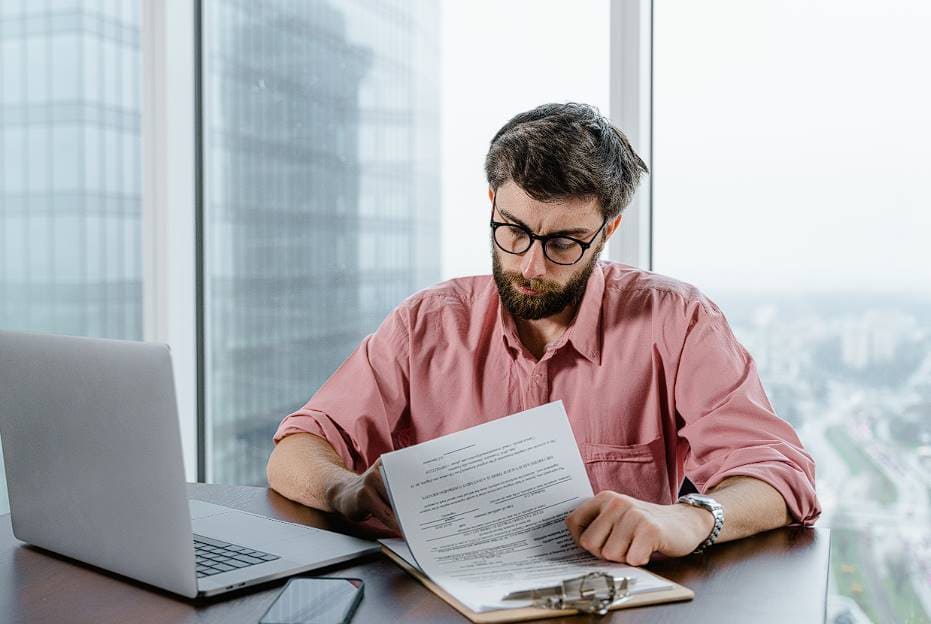Do you need blue-blocking sunglasses? It's a valid concern, especially in the present day when screen time is practically ubiquitous. Eye strain, disturbed sleep, and other health problems have all been related to the blue light emitted by electronic devices and LED lights. Can this issue be remedied by simply donning a pair of sunglasses?
Sunglasses provide some protection from blue light. Lenses with specific coatings or filters designed to restrict the transmission of blue light are used in many sunglasses that claim to protect blue light. These lenses filter out some blue light, which may help reduce eye strain and other side effects from prolonged exposure.
While certain sunglasses may provide more protection from blue light than others, not all sunglasses are equal. The type of lens used in a pair of sunglasses can affect how well they protect your eyes. Sunglasses that claim to block blue light are becoming increasingly popular, so it's important to find a pair that lives up to the hype.
Blue-blocking sunglasses can be a good investment if you wish to shield your eyes from blue light but are concerned about its potential negative effects. The best action is to talk to an optometrist or eye care specialist for tailored recommendations. After all, in today's increasingly digital environment, your eyes need the finest care and protection possible.
Defending Your Eyes From Blue Light: Why Is It Necessary?
The potential harm that blue light can do to one's eyesight and general health makes it imperative to take precautions to prevent it. Consider wearing blue-light-blocking glasses because of the following issues:
Fatigue and Eye Strain
The blue light from electronic devices and LED lights has been related to visual impairment, headaches, and eye fatigue. Excessive blue light exposure has been linked to dry eyes, blurred vision, and discomfort. These symptoms and the strain on your eyes can be lessened by limiting your time in blue light.
Sleep Disruption
The circadian rhythm is disrupted when blue light is emitted late in the day or at night. The sleep-regulating hormone melatonin is inhibited. This can cause you to have insufficient sleep, have difficulty in sleeping, and feel sleepy during the day. Reduce exposure to blue light hours before night to improve your sleep quality.
Macular Degeneration
Over time, excessive blue light exposure has been linked to age-related macular degeneration (AMD). Age-related macular degeneration (AMD) affects the macula, the area of the retina responsible for central vision, and is a primary cause of visual loss in the elderly. One way to lessen one's chances of having this illness is to shield one's eyes from blue light.
Digital Eye Strain
Digital eye strain, often computer vision syndrome, can develop from prolonged computer use. Eye dryness, neck, head, and shoulder pain, and visual blurring are all symptoms. Digital eye strain can be mitigated by filters or protective eyewear.
Potential Eye Damage
It has been hypothesised that the retina, the light-sensitive tissue at the back of the eye, can be damaged by extended exposure to high-intensity blue light. Blue light is present in natural sunlight, but the danger comes from exposure to too much of it at once. The long-term effects of blue light can be reduced with proper eye protection.
Several strategies exist for preventing damage to the eyes caused by blue light. You may protect your eyes from the harmful effects of screen time by putting blue light filters or screen protectors on your electronic devices, lowering the screen's brightness and contrast, taking frequent breaks from screen time, and, if required, wearing blue light-blocking glasses.
Can Blue Light Be Reduced By Wearing Sunglasses?
Sunglasses can block some blue light. If so, how much? What you see depends on the shade of your shades. Would it be better to use blue light glasses, commonly known as blue blockers or blue light blocking glasses? But remember that a more fair description would be that these glasses filter blue light and that the amount of blue light filtered varies with colour.
Filtering out blue light could be done in numerous ways. Photochromic lenses shield your eyes from the sun's harmful UV rays and filter some of the blue light emitted by electronic devices, making them ideal for indoor and outdoor use. Therefore, what should you do? Sunglasses might be useful for blocking harmful blue light when working on a laptop outside on a patio or balcony.
However, blue light glasses or computer glasses are a superior approach to assure comfort while using digital gadgets when indoors playing Fortnite, looking for employment online, reading a favourite book, or working on a major presentation for work.
However, blue light glasses or computer glasses are a superior approach to assure comfort while using digital gadgets when indoors playing Fortnite, looking for employment online, reading a favourite book, or working on a major presentation for work.
Do Computer Sunglasses Filter Blue Light?
Sunglasses typically include UV protection and glare reduction as their primary functions. It has been found that specific lens tints in sunglasses can mitigate the negative effects of blue light from a computer screen on one's eyes.
Sunglasses can block blue light with a yellow, dark amber, orange, copper, or brown lens tint. Both indoors and out, you'll benefit from the increased contrast and decreased blue light that these hues provide. If you want sunglasses that protect your eyes from UV and blue light, your best bet is to consult an ophthalmologist.
The Threat of Blue Light to Eye Health
Blue light, while beneficial for regulating circadian rhythms and promoting regular sleep-wake cycles, can also pose certain risks to human health when exposed to for extended periods of time. The retina, in particular, is susceptible to various effects caused by blue light exposure.
Research has indicated that prolonged exposure to blue light is associated with several eye conditions, such as macular degeneration, which refers to the progressive loss of central vision. Another eye condition linked to blue light is pterygium, characterized by an abnormal growth over the cornea. Additionally, blue light exposure has been connected to the development of cataracts, a condition characterized by clouding of the lens, and photokeratitis, which refers to dry eyes caused by exposure to either sunlight or artificial blue light.
Moreover, scientific studies have shown a correlation between blue light and mental health issues such as depression, as well as sleep disorders like insomnia. It is important to be aware of the potential risks associated with blue light exposure and take appropriate measures to protect the eyes, especially when using devices that emit blue light or spending significant time under bright sunlight.
Blue Light Protection Options
Overexposure to Blue Light is becoming an increasing concern in our modern world when smartphones, televisions, tablets, and computers are at the centre of our daily life. Wearing polarised sunglasses is one way to protect your eyes against Blue Light, and there are other measures you may take to lessen the damage.
Reduce Screen Time
The simplest method to avoid the detrimental effects of Blue Light exposure is to limit screen usage, especially before bed. Avoid electronic devices like phones and televisions at least an hour before bedtime to help your body wind down and get the rest it needs.
Use Blue Light Glasses
Blue Light blocking sunglasses provide the most comprehensive protection. If you don't care for your eyes, the symptoms of dryness and strain from staring at a computer screen will only worsen. Getting a good pair of glasses early will help you avoid future vision problems and reduce current optical pain.
Adjust the Lighting in the Room
Maintain a steady amount of light in the space. When switching from a bright screen to a darker area, you should expect your eyes to become fatigued.
Dim Displays at Night
Technology has advanced to the point where screens may gradually dim and change from blue to red as night falls. You may schedule "Night Mode" to activate on several smartphones and mobile devices after a specified time. Several companies are now offering bulbs with reduced levels of Blue Light emission.
Additional Blue Light Protection
Protecting yourself against blue light can be done by taking some extra measures. Never use your phone too close to bedtime, as the light from the screen will keep you awake and hinder your body from producing the sleep hormone melatonin.
Screen time is addictive, so try to cut back. Ensure you're getting enough shut-eye and taking frequent breaks from screen time. These measures will mitigate the potential health risks associated with blue light. Try to avoid using any artificial light sources by adjusting the lighting in your room. If you use electronic gadgets in bed or first thing in the morning, reduce their brightness.
Sunglasses are also recommended for use when going outside during the day. This protects you from the elements while letting you keep riding and hiking.
How To Determine If Sunglasses Are Blocking Blue Light.
It is crucial to test sunglasses for efficacy before buying them because they claim to block blue light. Thankfully, you can determine whether or not your sunglasses adequately block blue light by doing a few straightforward tests. Using a blue light filtering test card or an app on your smartphone is a common practice. These resources can let you know for sure if your sunglasses are protecting your eyes from blue light. Follow these guidelines to ensure your sunglasses adequately block harmful blue light:
- Find a source of blue light: If you want to test the sunglasses, you'll need a reliable source of blue light. A gadget that emits blue light or a filter optimised for blue light are both acceptable options here.
- Provide a safe and secure setting: Locate a place to regulate the light entering the room. The effect of outside light on the experiment outcomes will be reduced.
- Find the ideal spot for the blue bulb: Keep the source of blue light at a consistent distance from the eyewear. Check that it sits directly in the middle of the lenses.
- Remember the sunglasses: Try on the sunglasses you're interested in testing, ensuring they're a good fit and that the lenses completely cover your eyes.
- Please turn on the blue lamp: To expose your eyes to blue light, turn on the light source and position it to shine through the sunglasses.
- Look at the way light diffuses: Peek at the origin of the blue light through the sunglasses. You should be aware of the amount of blue light entering your eyes through the lenses. Sunglasses that filter out blue light should drastically lessen the light your eyes1/-/*1 are exposed to.
- Against the starting point: To get a true baseline, try the test with and without sunglasses. This will allow you to evaluate how effectively different sunglasses shield your eyes from blue light.
- Analyse the findings: Use what you've seen to assess the sunglasses' performance. If the sunglasses are good at filtering out blue light, the light from the source will be noticeably less.
Remember that this technique only allows for a qualitative evaluation of blue light blocking and not quantitative measurements. To get more precise readings, a spectrometer might be used to measure how much blue light gets through the sunglasses.
Conclusion
Protect your eyes and your health from the negative effects of blue light from electronic gadgets and LED lights by wearing blue-blocking sunglasses. These sunglasses feature lenses coated or filtered to block some of the blue light that would otherwise enter the eye, so reducing eye strain and other negative consequences from extended exposure. However, not all sunglasses offer the same level of protection for your eyes, and the lenses used can make a big difference.
There is mounting evidence that prolonged exposure to blue light—from digital devices or fluorescent lights—may lead to a variety of negative health effects for the eyes. Blue light-blocking glasses, which vary in colour to filter out different amounts of blue light, can help mitigate these side effects. In addition to protecting your eyes from the sun's UV rays, photochromic lenses also reduce the amount of blue light entering your eyes from electronic gadgets, making them suitable for use both indoors and outdoors.
Sunglasses designed specifically for use on computers can boost contrast and reduce blue light by adopting a lens tint of yellow, dark amber, orange, copper, or brown. Protect your eyes from harmful UV rays and blue light by getting prescription sunglasses from an ophthalmologist.
Prolonged exposure to blue light can cause eye problems such as photokeratitis, cataracts, pterygium, and macular degeneration. When utilising devices that emit blue light or spending extended periods of time in direct sunshine, it is essential to be aware of the potential risks connected with exposure and to take adequate steps to protect the eyes. Since cellphones, TVs, tablets, and laptops are all so ubiquitous in today's society, blue light exposure has become an increasingly pressing issue. Polarised sunglasses, limiting screen time, blue light glasses, adjusting lighting, dimming displays at night, and other techniques to decrease eye strain are all good ideas for protecting your eyes from blue light. Use a blue light filtering test card or an app on your smartphone to see if your sunglasses effectively block harmful blue light.
Find a trustworthy source of blue light, set up a risk-free environment, locate a suitable position for the blue bulb, keep the sunglasses handy, switch on the lamp, and see how the light filters through the frames. You should take the test both with and without sunglasses to achieve an accurate reading. Examine the data to see if the sunglasses successfully block out blue light. Keep in mind that this method can only provide a qualitative assessment of blue light blocking.
Content Summary
- Sunglasses with specific coatings or filters can help block blue light and reduce eye strain.
- Not all sunglasses are equal in their ability to protect against blue light, so it's important to find a reliable pair.
- Blue-blocking sunglasses can be a worthwhile investment for protecting your eyes from the negative effects of blue light.
- Eye strain, headaches, and visual impairment can be caused by prolonged exposure to blue light.
- Blue light exposure late in the day or at night can disrupt sleep and inhibit the production of melatonin.
- Age-related macular degeneration (AMD) can be linked to excessive blue light exposure.
- Prolonged computer use can lead to digital eye strain, which can be alleviated with filters or protective eyewear.
- Extended exposure to high-intensity blue light can potentially damage the retina.
- Blue light filters or screen protectors on electronic devices, along with adjusting brightness and taking breaks, can help protect the eyes.
- Sunglasses can block blue light, and the amount depends on the lens tint.
- Yellow, dark amber, orange, copper, or brown lens tints provide increased contrast and decreased blue light.
- Blue light glasses or computer glasses offer superior comfort when using digital devices indoors.
- Sunglasses with specific lens tints can mitigate the negative effects of blue light from computer screens.
- Prolonged exposure to blue light can lead to various eye conditions such as macular degeneration, pterygium, cataracts, and photokeratitis.
- Blue light exposure has been associated with mental health issues like depression and sleep disorders like insomnia.
- Limiting screen time, especially before bed, can help reduce the detrimental effects of blue light exposure.
- Blue light blocking glasses provide comprehensive protection and help prevent dryness and eye strain.
- Maintaining a steady amount of light in the room can help reduce eye fatigue when transitioning from a bright screen to a darker area.
- Dimming displays at night or using devices with "Night Mode" can help reduce blue light exposure.
- Taking extra measures like avoiding phone usage close to bedtime and cutting back on screen time can protect against blue light.
- Adjusting the lighting in the room and reducing device brightness can further mitigate blue light exposure.
- Sunglasses are recommended for outdoor use to protect against blue light and other elements.
- Testing sunglasses for blue light-blocking efficacy is crucial before purchasing.
- Blue light filtering test cards or apps can help determine if sunglasses adequately block blue light.
- Find a reliable source of blue light and create a controlled setting for testing sunglasses.
- Position the blue light source at a consistent distance in the middle of the sunglasses' lenses.
- Try on the sunglasses and ensure they fit well and fully cover your eyes.
- Turn on the blue light source and observe how the light diffuses through the sunglasses.
- Comparing the test results with and without sunglasses can evaluate their effectiveness in blocking blue light.
- Qualitative evaluation through this method can assess blue light blocking, but a spectrometer can provide more precise measurements.
- Blue-blocking sunglasses can help reduce eye strain caused by blue light.
- Prolonged exposure to blue light can disrupt sleep patterns and hinder melatonin production.
- Age-related macular degeneration is linked to excessive blue light exposure.
- Digital eye strain from computer use can be alleviated with filters or protective eyewear.
- Extended exposure to high-intensity blue light can potentially damage the retina.
- Blue light filters or screen protectors on electronic devices, along with brightness adjustments and breaks, can protect the eyes.
- Sunglasses with specific lens tints can mitigate the negative effects of blue light from computer screens.
- Blue light exposure is associated with various eye conditions and mental health issues.
- Limiting screen time, especially before bed, can reduce the detrimental effects of blue light exposure.
- Blue light blocking glasses provide comprehensive protection and alleviate dryness and eye strain.
- Maintaining consistent lighting in the room helps reduce eye fatigue when transitioning between screens and darker areas.
- Dimming displays at night and using devices with "Night Mode" can minimize blue light exposure.
- Avoiding phone usage close to bedtime and reducing overall screen time are important measures to protect against blue light.
- Adjusting room lighting and device brightness further reduce blue light exposure.
- Sunglasses are recommended for outdoor use to protect against blue light and other environmental factors.
- Testing sunglasses for blue light-blocking efficacy is crucial before purchase.
- Blue light filtering test cards or apps can determine if sunglasses adequately block blue light.
- Controlled settings and reliable blue light sources are necessary for accurate testing.
- Observing how light diffuses through sunglasses can indicate their effectiveness in blocking blue light.
- Spectrometers can provide precise measurements for evaluating blue light blocking capabilities.
Frequently Asked Questions
Yes, blue light blocking sunglasses can be worn indoors, especially in environments with high blue light exposure. Indoor sources of blue light include fluorescent and LED lighting, as well as digital screens. Wearing blue light blocking sunglasses indoors can help reduce eye strain and minimize the potential impact of blue light on our eyes.
Yes, blue light blocking sunglasses can help protect against digital eye strain. When you spend prolonged periods in front of digital screens like computers, smartphones, or tablets, your eyes can experience discomfort, dryness, and strain. Blue light blocking sunglasses can reduce the intensity of the blue light emitted by these screens, thus minimizing the potential eye strain and discomfort associated with prolonged screen time.
Yes, blue light blocking sunglasses can help improve sleep quality. Blue light, particularly in the evening and nighttime, can interfere with your natural sleep-wake cycle by suppressing the production of melatonin, a hormone that regulates sleep. By wearing blue light blocking sunglasses, especially during the evening hours, you can reduce the exposure to blue light and promote better sleep.
Blue light, particularly from digital devices and artificial lighting, can have negative effects on our eyes. Prolonged exposure to blue light can cause eye strain, fatigue, dryness, and even disrupt our sleep patterns. By wearing sunglasses that block blue light, we can help protect our eyes from these potential risks.
No, not all sunglasses with tinted lenses effectively block blue light. Tinted lenses may provide some level of protection by reducing overall brightness, but they do not necessarily filter out specific wavelengths of blue light. To ensure effective blue light blocking, it's important to choose sunglasses specifically designed for that purpose.

